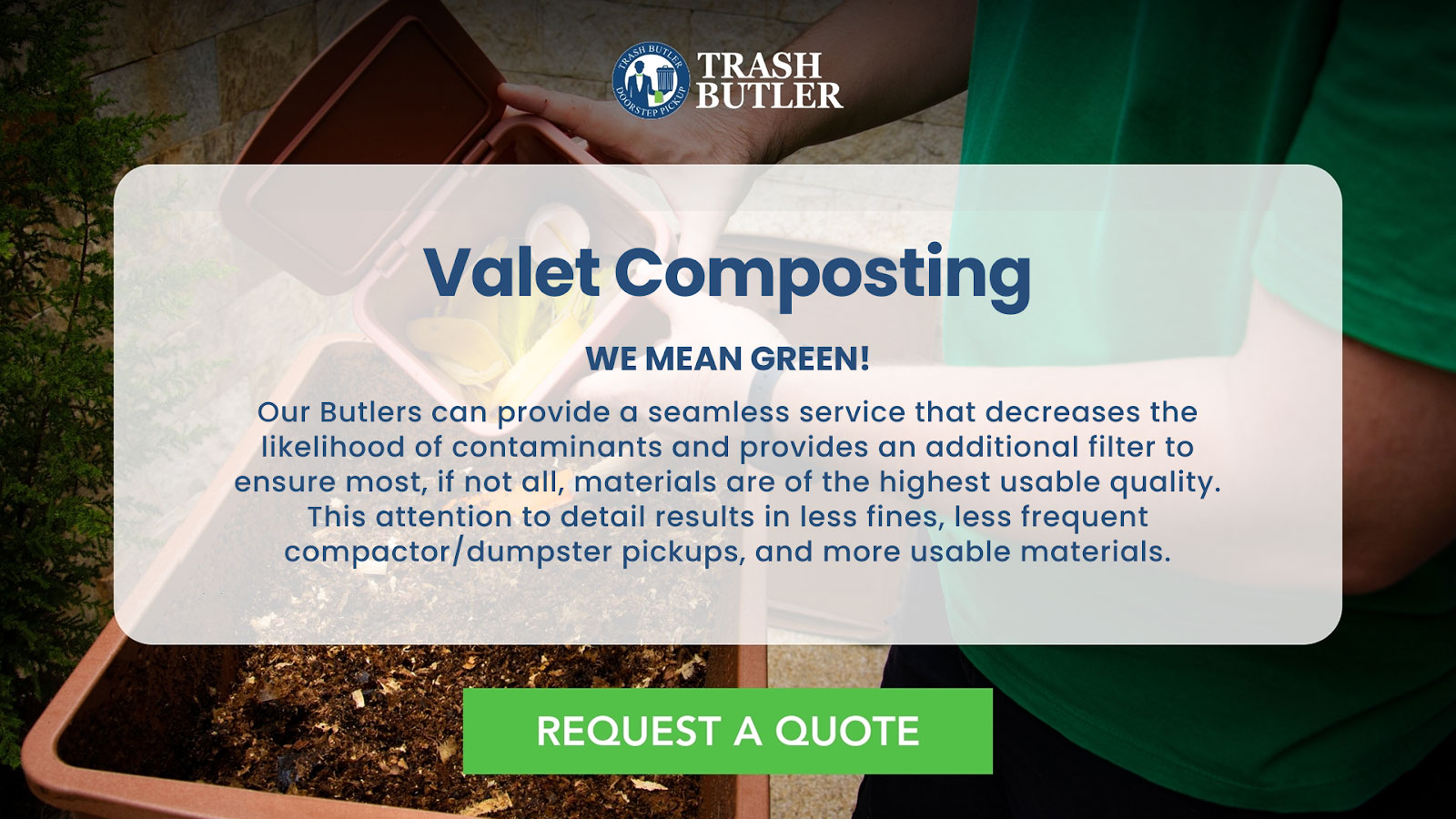The push for sustainability and eco-friendliness has never been more prevalent. Property managers of multi-family apartment communities are increasingly looking for ways to reduce their environmental impact, improve energy efficiency, and enhance the overall well-being of their residents. One critical standard that property managers should be aware of is the National Green Building Standard.
Understanding and adhering to the National Green Building Standard can have numerous benefits for property managers. Not only does it help reduce operating costs and increase the property’s value, but it also contributes to a healthier living environment for residents.
This article will discuss the key aspects of the National Green Building Standard that property managers should know, how they can impact their operations, and why they are crucial for the future of multi-family living communities.
National Green Building Standard
The National Green Building Standard (NGBS) is a rating system and certification program developed by the National Association of Home Builders (NAHB) and approved by the American National Standards Institute (ANSI). It provides guidelines for sustainable and environmentally friendly construction practices for residential and commercial buildings. The NGBS covers various aspects of green building, including energy efficiency, water conservation, indoor air quality, site development, and materials selection.
Buildings can achieve certification at different levels (Bronze, Silver, Gold, and Emerald) based on their compliance with the NGBS criteria. NGBS certification helps builders, developers, and property managers demonstrate their commitment to sustainability, improve building performance, and reduce environmental impact.
Key Components of the National Green Building Standard
The National Green Building Standard (NGBS) encompasses several key components that address various aspects of sustainable building practices. These components are guidelines for builders, developers, and property managers seeking NGBS certification. Here are some essential aspects to be aware of:
Site Design and Development
The NGBS encourages sustainable site design and development practices to minimize environmental impact, protect natural resources, and promote ecological balance. Property managers should consider factors such as site selection, stormwater management, and landscaping strategies that support biodiversity.
Energy Efficiency
Energy efficiency is a crucial component of green building practices. The NGBS outlines standards for energy-efficient building design, HVAC systems, insulation, lighting, and appliances. By adhering to these guidelines, property managers can reduce energy consumption, lower utility costs, and decrease carbon emissions.
Water Efficiency
Conserving water is another key focus of the NGBS. Property managers can implement water-efficient fixtures, appliances, and landscaping practices to reduce community water usage. By promoting water conservation, managers can contribute to environmental sustainability and reduce residents’ water expenses.
Indoor Air Quality
Indoor air quality plays a significant role in residents’ health and well-being. The NGBS includes ventilation, moisture control, and pollutant reduction criteria to create a healthy indoor environment. Property managers can improve air quality by using low-emission building materials, ensuring proper ventilation, and maintaining indoor humidity.
Sustainable Practices
Incorporating sustainable practices such as recycling programs, green cleaning strategies, and eco-friendly amenities can further enhance green building initiatives within multi-family apartment communities. Property managers should prioritize sustainability efforts to create a more environmentally friendly living environment for residents.
Benefits of Adhering to the National Green Building Standard
Adhering to the National Green Building Standard (NGBS) offers numerous benefits for builders, developers, property managers, occupants, and communities. Here are some of the key benefits:
- Cost Savings: NGBS-certified buildings typically have lower operating costs due to improved energy efficiency and water conservation measures. This leads to significant long-term savings on utility bills for both property owners and occupants.
- Positive Brand Image: Demonstrating a commitment to sustainable practices through NGBS compliance can enhance the reputation of property managers and their communities. This can differentiate them in the market, attract socially responsible tenants, and strengthen community relationships.
- Increased Property Value: NGBS certification enhances the market value of buildings by demonstrating a commitment to sustainability and environmental responsibility. Green buildings often command higher resale values and rental rates, leading to increased returns on investment for owners and investors.
- Improved Indoor Air Quality: Green building standards prioritize indoor air quality through proper ventilation systems, low-VOC paints, and natural lighting. This can lead to a healthier living environment for residents, reducing the risk of respiratory issues and promoting overall well-being.
- Regulatory Compliance: Adhering to the NGBS helps builders and developers meet or exceed regulatory requirements for sustainable construction and green building practices. NGBS certification demonstrates compliance with local, state, and federal regulations, reducing the risk of fines or penalties for non-compliance.
Steps for Property Managers to Implement the National Green Building Standard
Implementing the National Green Building Standard (NGBS) involves several key steps for property managers seeking to integrate sustainable practices into their building operations. Let’s explore this simplified guide:
- Educate Staff and Residents: Property managers should start by educating their staff and residents about the importance of the National Green Building Standard. This can include organizing informational sessions, distributing educational materials, and fostering a community’s sustainability culture.
- Assess Current Practices: Evaluate your current building operations and identify areas for sustainability improvements.
- Set Goals: Establish clear goals and objectives for implementing the NGBS within your properties. Determine the level of certification (Bronze, Silver, Gold, or Emerald) that aligns with your sustainability objectives and budget constraints.
- Engage Stakeholders: Communicate your sustainability goals to building owners, tenants, vendors, and other stakeholders. Foster buy-in and collaboration by involving key parties in decision-making and soliciting feedback on potential green initiatives.
- Develop a Plan: Create a comprehensive plan outlining specific strategies and actions to achieve NGBS certification. Address each NGBS component, including energy efficiency, water conservation, indoor environmental quality, site development, materials selection, and waste management.
- Celebrate Achievement: Upon completing the certification process, celebrate your achievement and promote your NGBS-certified building to tenants, prospective tenants, and the broader community. Highlight the environmental, economic, and social benefits of green building certification.
- Continuously Improve: Commit to ongoing improvement and innovation in sustainability practices. Stay informed about emerging trends, technologies, and best practices in green building and continually strive to enhance your properties’ performance and sustainability.
Common Misconceptions About The National Green Building Standard
Despite its benefits and widespread adoption, the National Green Building Standard (NGBS) sometimes needs to be understood.
- It’s Only for New Construction: One of the most common misconceptions is that the NGBS only applies to new construction projects. In reality, the standard can be applied to both new construction and existing buildings through renovation and retrofitting.
- It’s Expensive: Many people believe that implementing the NGBS is costly. While upfront expenses may be associated with green building practices, the long-term energy and water cost savings often outweigh these initial investments. Moreover, there are cost-effective strategies available to minimize expenses.
- It’s Only About Energy Efficiency: While energy efficiency is a significant component, the NGBS encompasses much more than energy-saving measures. It also addresses water conservation, indoor air quality, sustainable site development, materials selection, and waste management, among other factors.
- It’s Too Complicated: Some may perceive the NGBS as overly complex and difficult to understand. However, resources and tools are available to simplify the certification process, making it accessible to a broader audience.
- It’s One-Size-Fits-All: Another misconception is that the NGBS imposes a rigid set of requirements that must be followed precisely. In reality, the standard offers flexibility and allows builders and developers to choose from multiple pathways to certification based on their specific project goals and constraints.
Cost-Effective Strategies For Implementing The National Green Building Standard
Implementing the National Green Building Standard (NGBS) doesn’t have to break the bank. There are several cost-effective strategies that property managers can consider to align their buildings with sustainable practices.
Energy-Efficient Lighting
Switching to LED lighting can significantly reduce energy consumption and costs over time. LED bulbs have a longer lifespan and consume less energy than traditional incandescent bulbs, making them a cost-effective choice for green buildings.
Water Conservation
Installing low-flow faucets, toilets, and showerheads can help conserve water without compromising performance. These fixtures are affordable and easy to install, making it a simple yet effective way to meet NGBS water efficiency requirements.
Proper Insulation
Improving insulation in buildings can enhance energy efficiency by reducing heating and cooling losses. Property managers can consider adding insulation to walls, attics, and floors to create a more comfortable indoor environment while lowering utility bills.
Recycling Programs
Implementing a recycling program within the property can promote waste diversion and sustainability. Encouraging residents to recycle and providing designated recycling bins can minimize landfill waste at a minimal cost.
Smart Thermostats
Upgrade to smart thermostats that can regulate indoor temperatures efficiently based on occupancy patterns and preferences. These devices can optimize energy usage and reduce heating and cooling expenses without compromising comfort.
By incorporating these cost-effective strategies, property managers can gradually transition their buildings to meet the NGBS requirements while realizing long-term cost savings and environmental benefits. Remember, sustainable practices contribute to a greener future and enhance the property’s overall appeal and value.
Ensuring Compliance: Tips For Property Managers
Property managers uphold the National Green Building Standard within their communities. To ensure compliance and maximize the environmental benefits of green building practices, here are some essential tips for property managers to consider:
Stay Up-to-Date with Green Building Regulations
Property managers must stay informed about the latest green building regulations and standards the National Green Building Standard sets forth. Property managers can proactively implement sustainable practices that align with the standard’s requirements by keeping abreast of updates and changes.
Educate Staff and Residents
Educating staff and residents about the importance of green building practices is key to achieving compliance. Property managers can conduct training sessions, distribute informational materials, and host workshops to raise awareness and encourage participation in sustainability initiatives.
Implement Sustainable Waste Management Systems
Incorporating sustainable waste management systems, such as valet trash and recycling services like Trash Butler™, can significantly reduce the environmental impact of a property. Property managers can improve overall compliance with green building standards by providing residents with convenient recycling options and waste collection services.
Monitor Energy and Water Usage
Incorporating sustainable waste management systems, such as valet trash and recycling services like Trash Butler™, can significantly reduce a property’s environmental impact. Property managers can also improve compliance with green building standards by providing residents with convenient recycling options and waste collection services.
Collaborate with Green Building Experts
Seeking guidance from green building experts and sustainability consultants can further assist property managers in ensuring compliance with the National Green Building Standard. Collaborating with professionals specializing in sustainable practices can provide valuable insights and recommendations for enhancing eco-friendly initiatives within the community.
Refining Waste Management: Trash Butler’s Effort To Streamline Property Management
At Trash Butler™, we understand the importance of waste management in maintaining a sustainable and efficient property. As the national green building standard continues to shape the real estate industry, property managers face the challenge of meeting these standards while optimizing their operations.
One way Trash Butler™ contributes to sustainable property management is through our doorstep valet trash service and recycling solution. Our valet trash service promotes sustainability and streamlines property management processes.
With our easy-to-use system, residents place their waste outside their doors on designated collection days, eliminating the need for individual trips to communal dumpsters. This saves residents time and effort, reduces noise pollution, and maintains the property’s aesthetic appeal.
Request a quote now to discover how affordable and effective our services can be. Let our Butlers make a difference by creating a cleaner, greener, and more efficient living environment for your residents.
Final Thoughts
Adopting the National Green Building Standard (NGBS) is crucial in forging a sustainable path forward. Embracing this standard enables us to erect structures prioritizing energy efficiency, environmental responsibility, and occupant well-being.
Contrary to popular belief, NGBS certification is attainable for new constructions and existing edifices. It brings advantages like reduced expenses, heightened property worth, and compliance with regulations.
By integrating the NGBS, we actively contribute to fostering a greener, healthier, and more enduring built landscape for future generations.
As a leader in sustainability solutions for multi-family apartment communities, Trash Butler™ is dedicated to helping property managers navigate the complexities of green building standards. Our doorstep valet trash service and recycling solutions are designed to complement the efforts of property managers striving to meet and exceed environmentally friendly benchmarks. Together, we can create a more sustainable future for generations to come.
Contact us today to learn more about how we can help revolutionize waste management in your multi-family community. Let our Butlers make the difference for you!
Additional Read:
- Top Must-Have Amenities For Apartment Complexes
- Trash Butler’s Green Initiative: Pioneering Eco-friendly Valet Trash Services
- The Benefits Of Valet Trash Services For Apartment Complexes
Frequently Asked Questions on the National Green Building Standard
Is certification under the NGBS mandatory for property managers?
No, certification is not mandatory for property managers. The NGBS provides voluntary certification for residential buildings that meet specific green building criteria. While adopting these standards can significantly benefit property management regarding sustainability, operational efficiency, and resident satisfaction, it is not a legal requirement.
Are there different levels of NGBS certification?
Yes, the NGBS offers multiple levels of certification, including Bronze, Silver, Gold, and Emerald. Each level represents an increased commitment to sustainability and environmental performance. Properties achieve these levels based on a scoring system that measures the building’s design and construction phases against the NGBS criteria.
What are some cost-effective strategies for implementing the NGBS?
Adopting cost-effective strategies for NGBS implementation can include focusing on energy efficiency, such as upgrading to LED lighting, enhancing insulation, and installing energy star appliances. Water conservation technologies, such as low-flow fixtures and drought-resistant landscaping, can also be implemented. Starting with small, incremental enhancements can pave the way for broader sustainability initiatives over time.
What are some resources available to help property managers with NGBS compliance?
Several resources are available to assist property managers with NGBS compliance, including:
- The official NGBS website offers comprehensive guides and documentation.
- Green building consultants specializing in NGBS certification can provide tailored advice and support.
- Workshops, webinars, and online courses on NGBS compliance and best practices.
Does NGBS certification apply only to new construction, or can existing buildings also be certified?
The NGBS applies to both new construction and existing buildings. The NGBS has a specific pathway for existing buildings that address renovations, remodeling, and repairs to improve sustainability and energy efficiency. This makes the NGBS a versatile standard for various property types and lifecycles.
Are there any tax incentives or financial benefits associated with NGBS certification?
NGBS certification can qualify properties for specific tax incentives, grants, and financial benefits. These incentives vary by location and the specific level of NGBS certification achieved. Property managers should research local and federal programs encouraging green building practices through financial incentives.
Can NGBS certification help property managers attract and retain tenants?
Absolutely. NGBS certification can significantly enhance a property’s appeal to prospective tenants who prioritize environmental sustainability and healthy living environments. Additionally, properties with green certifications often report higher tenant satisfaction and retention rates, attributing to lower operational costs and improved community reputation.
What role does indoor air quality play in NGBS certification?
Indoor air quality is a crucial component of NGBS certification. The standard includes specific requirements and practices to improve indoor air quality, such as using low-emitting materials, ensuring adequate ventilation, and adopting air filtering systems. These measures help create a healthier and more comfortable living environment for residents.
What is the role of third-party verification in NGBS certification?
Third-party verification is essential to the NGBS certification process. It ensures the integrity and accuracy of the certification by having an independent, accredited verifier assess the property’s adherence to the NGBS standards. This objective evaluation confirms that the property met the criteria for green building.
What are the challenges property managers may face when implementing the NGBS?
Implementing the NGBS can present challenges, including the initial cost of green upgrades and renovations, navigating the certification process, and educating staff and residents about sustainable practices. However, these challenges can be mitigated through strategic planning, leveraging available resources, and engaging the community in sustainability efforts.







